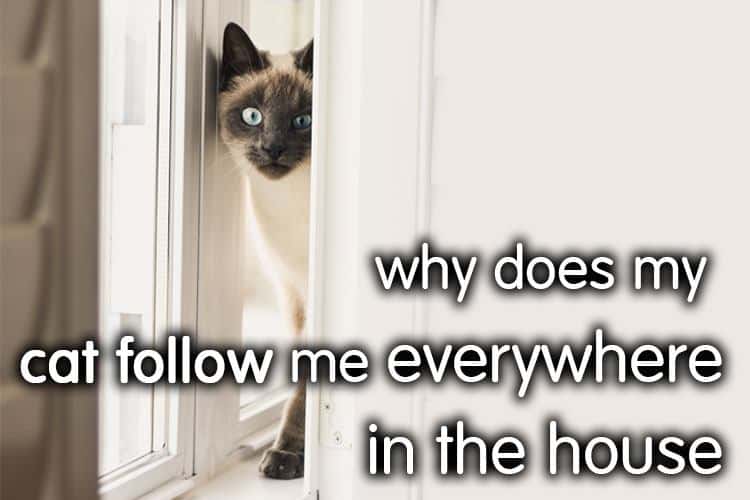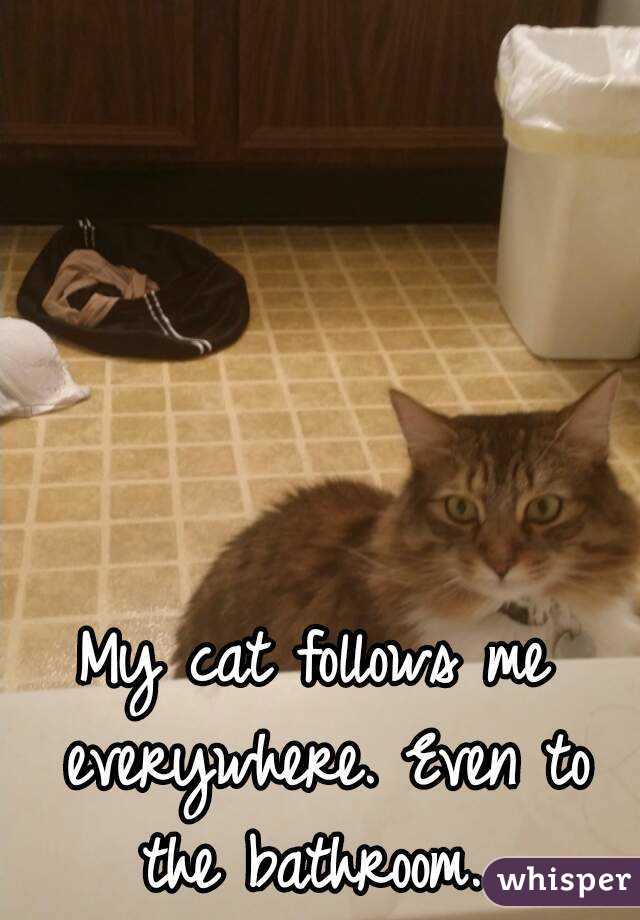

Plus, at times it can be awkward or dangerous – for example, if they get under your feet as you’re coming down the stairs or carrying hot pans in the kitchen. While shadowing you is generally a harmless habit, there are situations when it can be a sign of a psychological problem in your pet. My cat following me is becoming a problem That’s why your cat may escort you everywhere if you’ve just returned from holiday – or even when they see the suitcase they associate with you going away. Many people think of cats as being fiercely independent, but they often enjoy a close bond with their owners and can feel insecure if this is disrupted, even temporarily. So your cat may cling closely when they think it’s time for tea or for you to unlock the door. RoutineĬats are creatures of habit and quickly learn to expect food, play or outdoor access at a particular time. So, if you’re wondering why your cat follows you to the bathroom, or stands in the doorway when you’re leaving the house, it might be because they’re trying to maintain maximum access to their entire domain. TerritoryĪs highly territorial animals, many cats hate having part of their turf blocked by a closed door. Certain breeds, including Siamese, Burmese, Abyssinian and Bengal cats, are especially sociable, so don’t be surprised if they try to join you on a video call or even in the shower. Following you around and getting in your way is usually a pretty effective way to do this – sometimes with insistent meowing to really get the message across! Companionship Your cat can’t get their own food or water, so if they’re hungry or thirsty they need to let you know. When you move around, they want to bunt your shins and calves. One of the ways they let you know this is by rubbing their head against you (called ‘bunting’) to mark you with their scent and show they feel relaxed in your company. If they can get this attention by winding around your legs or jumping up on your laptop, then that’s what they’re going to do! AttachmentĬhances are, you are your cat’s favourite individual. Being scratched or stroked around the scent glands on their cheeks, chin, head and neck is particularly pleasurable for them. So, when your cat dives between the clean sheets you’re putting on the bed or chaperones you into the shed, it may just be a sign of their inquisitive nature. They often follow their owners around to find out what’s going on – and, all-importantly, whether it offers new opportunities for play, food or expanding their territory. There are many reasons why cat owners might often have their pet on their heels around the home: CuriosityĬats are famous for their curiosity. So, why might our cats be trailing after us – and what can you do if you’d like to gently discourage the habit? Why your cat might follow you In fact, many see it as an endearing and enjoyable part of cat ownership. And for most owners, having a cat-shaped shadow isn’t too much of an issue. It’s not unusual to find your cat following you around (even into the bathroom!).



My cat following me is becoming a problem.


 0 kommentar(er)
0 kommentar(er)
